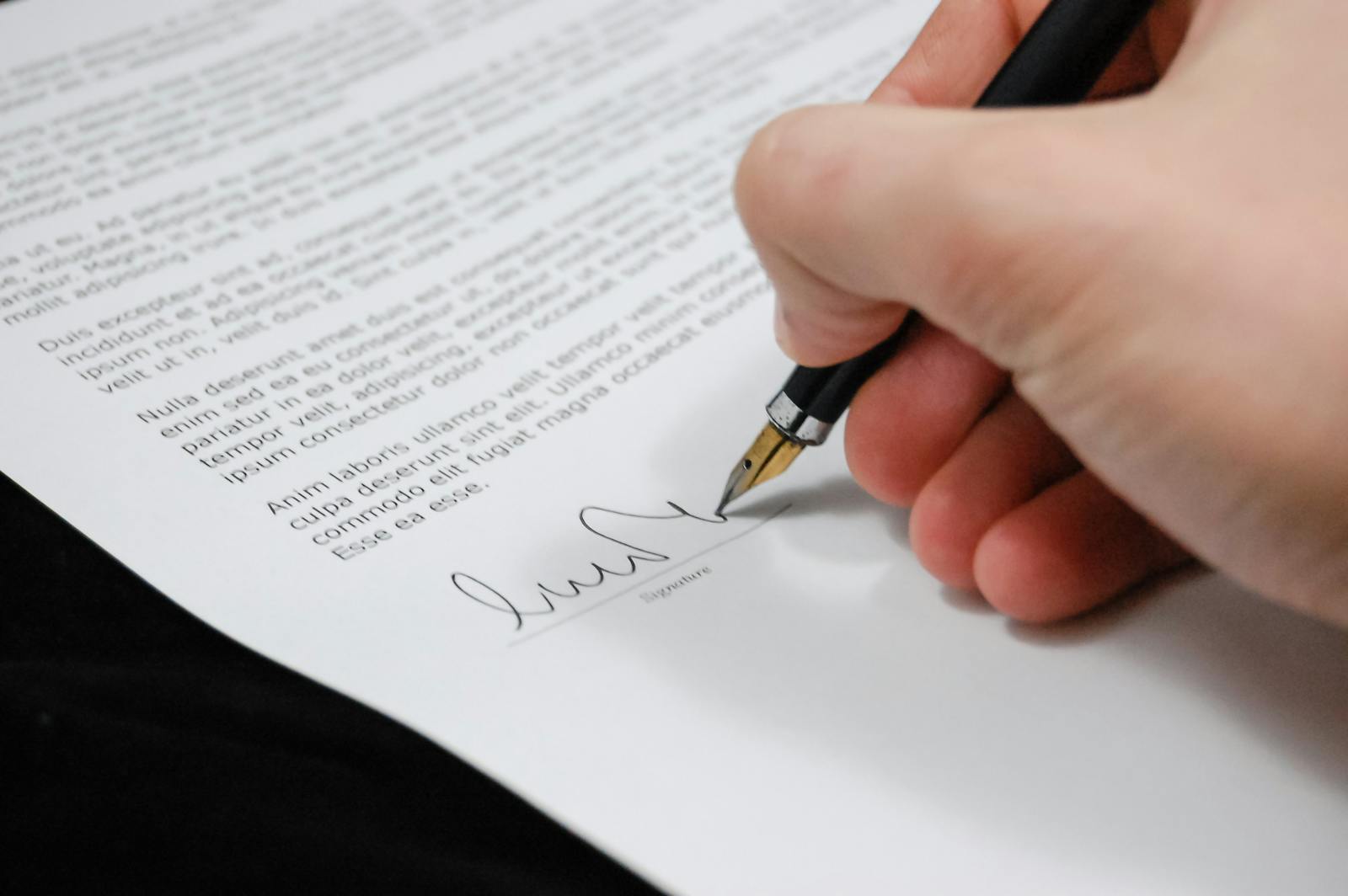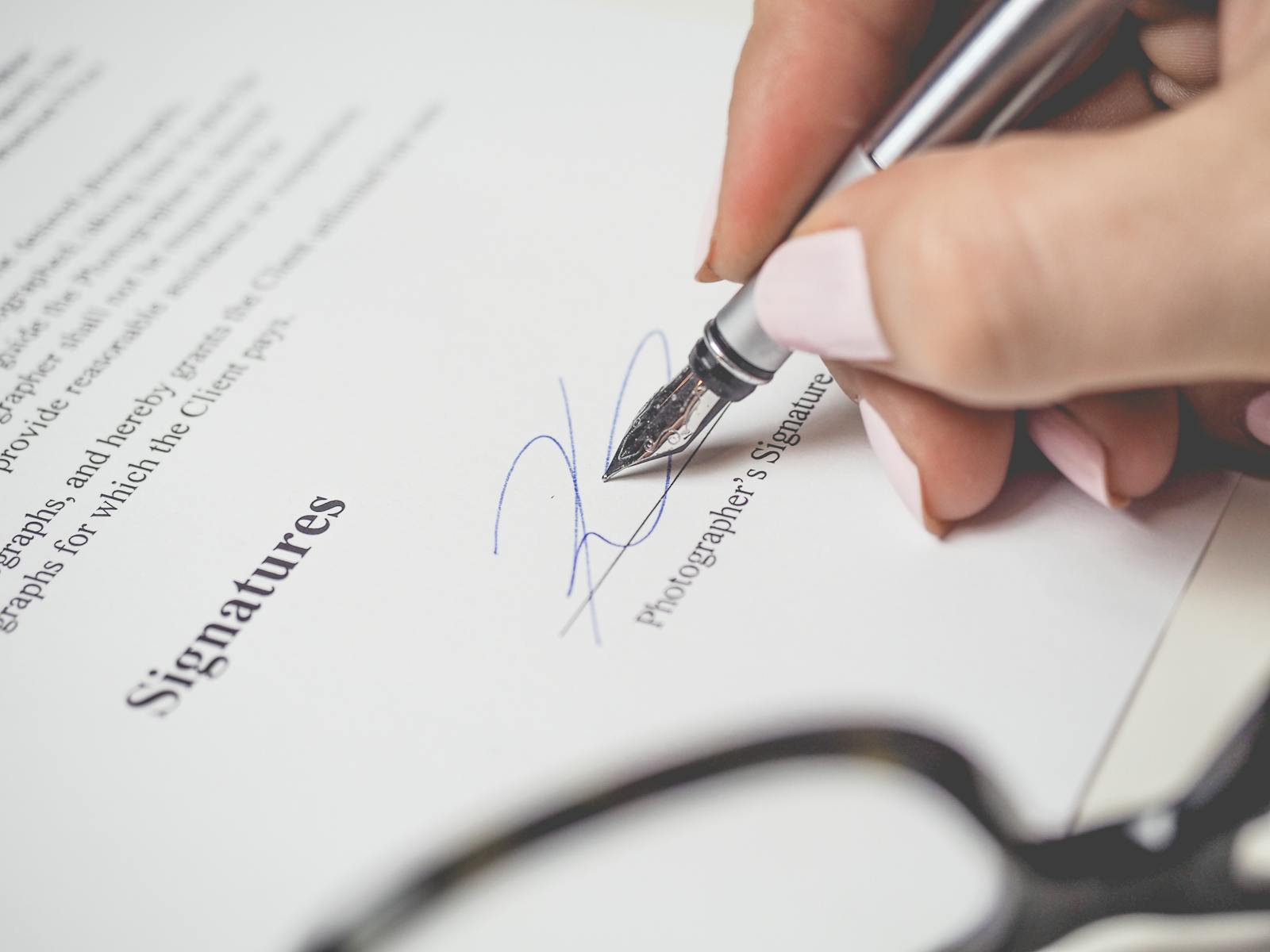Creating a legally valid will is one of the most important steps you can take to ensure your wishes are honored after your passing. At BruegelPC, we understand how confusing and daunting this process can seem. I want to share straightforward tips to help you navigate through making your will, ensuring it’s legally binding and reflects your true intentions. Let’s simplify this critical task together so you can have peace of mind for the future.
As stated in the American Bar Association, to make a will legal, you must sign it in front of witnesses, usually two or more. The witnesses must also sign the will to confirm they saw you sign it. Lastly, you need to be of legal age and sound mind when making the will.
What is a Will?
A will is a powerful legal tool that grants you the final say in the allocation of your life’s wealth and treasured possessions.
Primarily, having a will allows you to choose who gets your belongings after you die and to pick someone (an executor) to make sure your wishes are followed. You can also use a will to name guardians for your children. A will helps make things clear for your loved ones during a tough time.
It’s important to update your will if your situation changes, like if you get married, divorced, or have kids. Simply put, if you don’t have a will, state laws will decide what happens to your assets, which might not match what you want.
Making a will is an important part of planning for the future. It can give you peace of mind knowing your wishes will be followed. It’s a good idea to talk with a lawyer to make sure your will is done right and is legally valid.
Why Make a Will Legal?
A legal will prevents disputes and ensures your assets are distributed as you wish.
By definition, if you don’t have a legal will, your belongings and assets might be distributed by the state according to their rules, which might not be what you want. A legal will helps make sure your loved ones know your wishes, which can prevent arguments and confusion. It also lets you choose someone to manage everything, making sure your wishes are followed properly.
To cut a long story short, having a legal will gives you peace of mind that your wishes will be respected and that your loved ones will be cared for the way you want. Creating a legal will is a thoughtful way to protect your legacy and make sure your assets are handled as you desire. It’s a proactive step that brings security and peace of mind for you and your loved ones.
Steps to Make a Will Legal
Going back to earlier points, to make a will legal, you must be of sound mind and at least 18 years old, which ensures that the decisions made are both mature and rational.
Primarily, you need to clearly state that the document is your last will and testament. It should be written down and signed by you in front of at least two witnesses who won’t benefit from the will. These witnesses must also sign the will while you watch. It’s a good idea to have them sign an affidavit saying they saw you sign the will.

At its heart, your will should clearly list who gets what from your assets and property. Keep the original will in a safe but easy-to-find place and let your family know where it is. Remember to review and update your will now and then, especially after big life changes like getting married, divorced, or having kids. Think about getting legal advice to make sure your will is legally sound and reflects your wishes.
Witness and Notary Requirements
As we’ve established previously witness and notary requirements change based on the document type and where it’s signed.
In basic terms, a witness is someone who watches a legal document being signed and confirms that they saw it happen. A notary public is an official who checks the identity of the person signing the document and makes sure they are signing it willingly and without force.
Certain documents, like wills and deeds, might need both witnesses and a notary public to be valid. In these cases, the witnesses need to be there to see the signing and confirm that the person signing is who they claim to be. Essentially speaking, the notary public will check the person’s identity, make sure they are signing freely, and add an official seal to the document.
For other documents, such as contracts or sworn statements, only a notary public might be needed. The notary will ensure the person signing knows what they are doing, understands the document, and is legitimately who they claim to be before notarizing it.
It’s very important to follow the witness and notary rules for each document to make sure it is legally valid. If not, the document could be disputed or considered invalid in court.
Storing Your Will Safely
As outlined previously, store your will in a fireproof home safe or a safe deposit box to ensure it survives both theft and natural disasters.
Primarily make sure your executor and trusted family members know where your will is. You might want to keep a copy with your lawyer or store it online. Place the original will in a sealed envelope and include your executor’s contact info.
Check your will often and update it if your wishes change. Don’t keep it at home in an obvious place where it could get lost or damaged. Basically protect your will from theft by securing its location. Keep important documents, like deeds or insurance policies, with your will to make things easier for probate.
Tell the right people where to find your will to avoid confusion later. Taking these steps will help ensure your final wishes are honored.
My Final Perspective
As we’ve established previously, in order to make a will legal, it is essential to ensure that it meets the legal requirements of the state in which it is being executed.
What BruegelPC is encouraging you to keep in mind is that this includes having the document witnessed and signed by the appropriate number of witnesses, as well as ensuring that the testator is of sound mind and not under any undue influence. Seeking guidance from a legal professional can help ensure that your will is legally valid and will be upheld in court.

